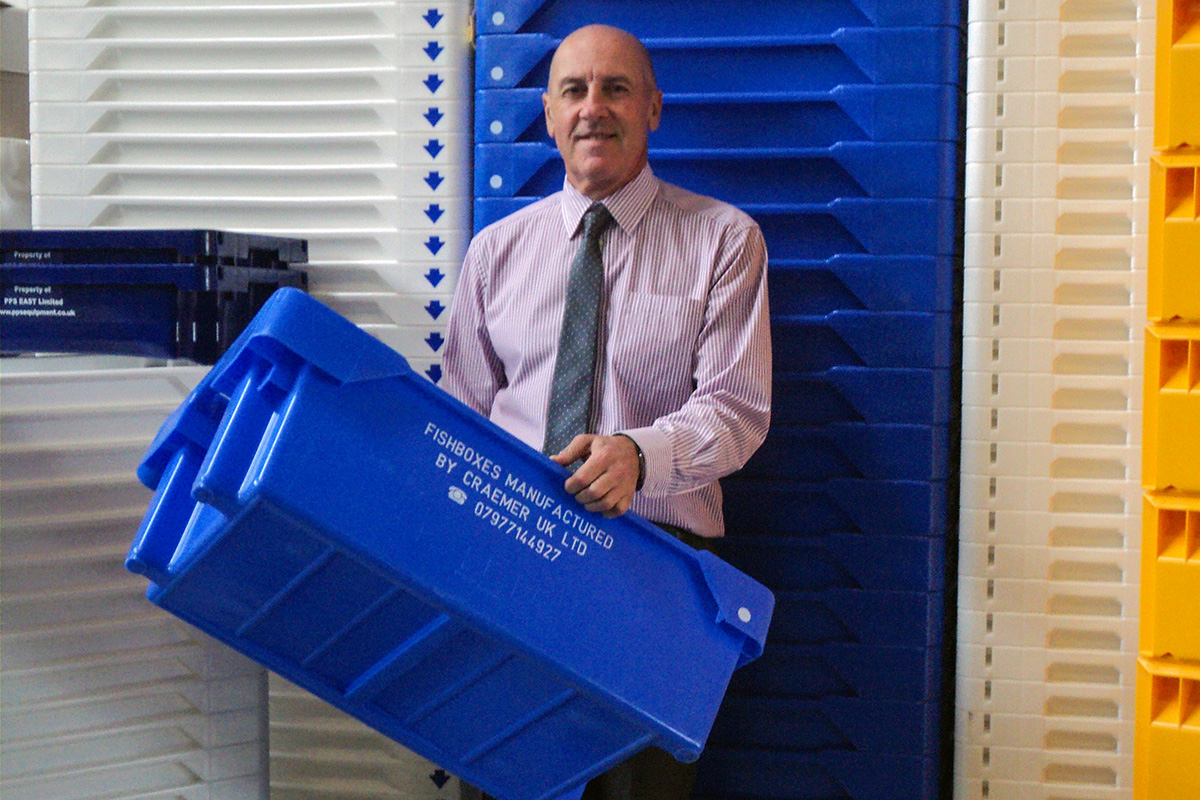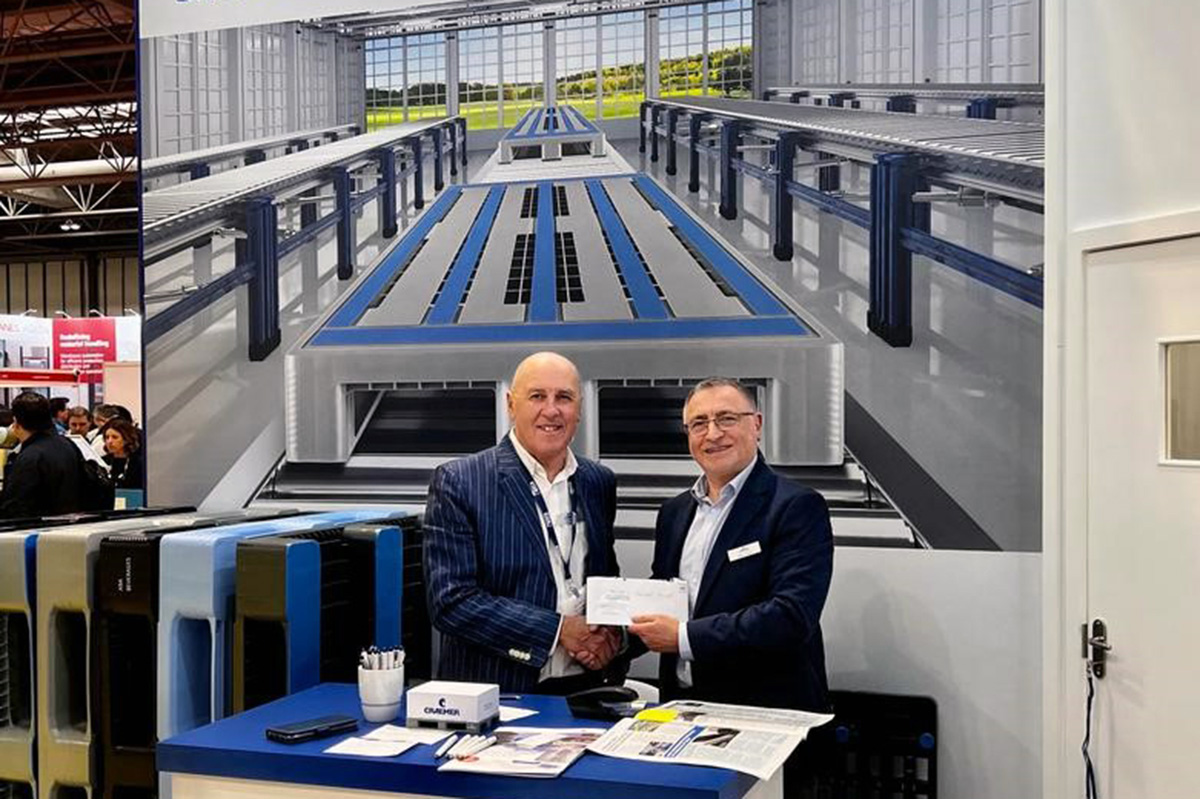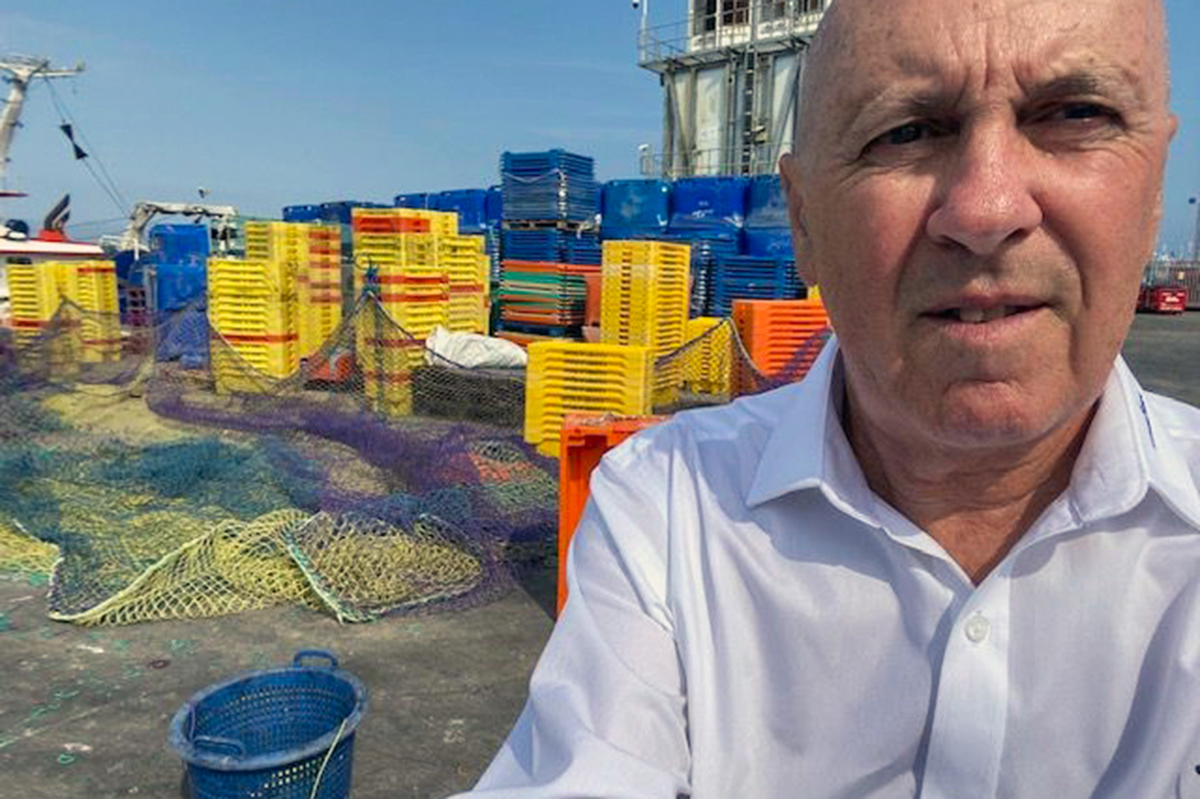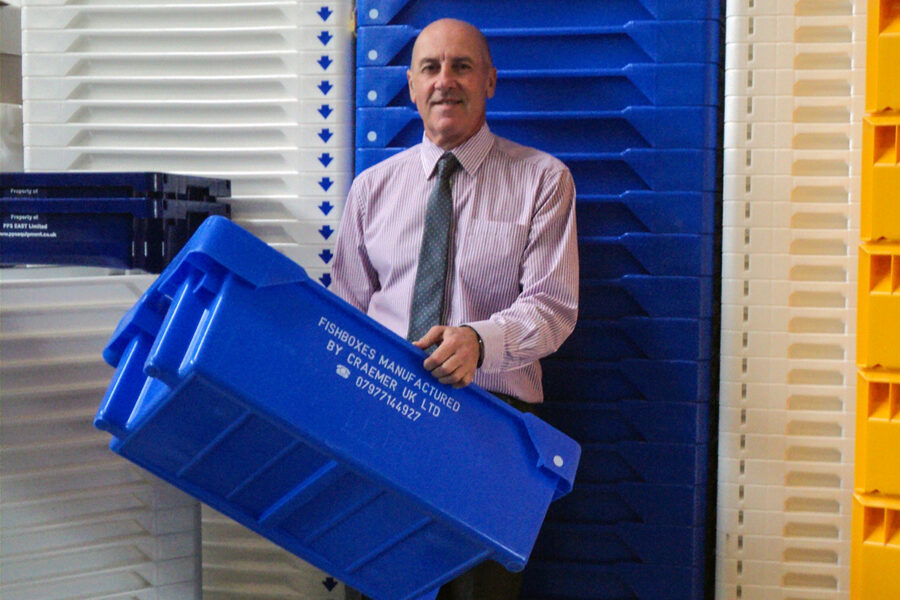“There’s a lot more to a fish box than meets the eye,” Chris Neill, project manager at Craemer UK told Fishing News.
“Even though it might be something that you don’t even notice, it’s so important to the whole process – right through from the fishing boat, into the auction, on to the processor and then back again. It’s an essential part – it doesn’t stand up and shout, but it’s always there.”
Craemer UK specialises in plastic injection moulding, and manufactures a range of products including wheelie bins, pallet boxes, plastic pallets – and fish boxes.
“I’ve been in the plastic injection moulding business for over 40 years,” said Chris. “I started with a company called LINPAC in the days when crates were mostly made out of cardboard and wood.”

Chris Neill, project manager at plastic injection moulding specialist Craemer UK, which supplies fish boxes to the industry nationwide. “It’s a long-term business, the fishing industry, and it’s a bit like Hotel California – you can check in any time you like, but you can never leave. I feel part of it now, and I feel very humble that I’m involved in it. I have the highest regard for those guys who go to sea, and everyone involved in the industry – not just the dangers, but all of the bureaucracy faced these days.”
In the late 1990s, Chris joined the family-owned company Craemer, which is based in Germany. “They approached me to set up their first business outside of Germany. It was a great opportunity.”
The business quickly grew, and in 2006 Craemer built a factory in Telford in order to expand into producing environmentally focused products. As the company grew further, a sales team was recruited to cover the pallet and pallet boxes areas of the business. The move allowed Chris to focus fully on the fishing industry, and working alongside the industry he helped to develop new tools for the manufacturing of specialised fish boxes.
“We’ve built up a good reputation for reliable products for the market, where that product gets a hell of a beating – from being on a vessel and filled with fish, through to auctions and processing, the box wash, and back out on a truck and then onto the fishing vessel again. I think because of the quality of the product, and what I would hope is reasonable service from our side, that helped put us in probably the number one position in the UK for supplying to the fishing industry.”

Chris at a trade show in Birmingham. Attending exhibitions is an important part of his role. “It gives you a chance to see a lot of people that it would maybe take a year or two to see otherwise. It’s a great business-to- business opportunity. People are a bit more relaxed, and not distracted by all the stresses and strains of the everyday. It’s a good chance to talk.”
As project manager, Chris’ role encompasses a wide range of responsibilities – with no two days the same.
“I’m available more or less 24/7. If I’m on holiday, or it’s the weekend, it doesn’t matter to me. I’m happy to receive a call, because the guys who need the boxes don’t have normal working times.
“We have the factory in Telford, and I have an office near Manchester, so I’m able to travel about as I need to. A lot of that is involved with exhibitions, such as the Scottish Skipper Expo in Aberdeen or the Seafood Expo Global in Barcelona, as well as visits to harbours.
“I also spend quite a bit of time at the desk – organising, making sure we’ve got things planned in production, and making sure the details are always correct.
“People think it’s just a box – but it isn’t. There are so many aspects to it when a customer places an order. The colour has to be right, the print has to be right, and of course the quality has to be spot on. There’s a lot to it before the box gets out and bashed about at sea.
“There’s a lot involved in the detail to make sure we’ve got it right – because once we set the tool up on the machine and start to run, then it’s away and can’t be changed. If you get something wrong, then you’ve got to scrap the lot – and that can be a very costly exercise.
“We have to cover every aspect of that production. I spend a lot of time just making sure – correcting, checking and ensuring the boxes are the right quality, ready to go and delivered properly.”
Chris travels down to Telford regularly. “I go to the factory once every couple of weeks. It’s amazing what you can see just by walking around. I still find it fascinating after all this time watching the machines and the boxes being made. It’s so technically brilliant.”
One of the most important aspects of Chris’ job is visiting harbours to meet with both existing and potential new clients. “If there is a potential customer who I haven’t met before, I always find it’s best to meet face to face, shake hands and have a chat to understand what their needs are.

Chris in Newlyn. “By walking around a harbour and seeing how things are used, you get the best feel for what you can recommend. It’s amazing how different the requirements are across the country. In places like Peterhead, they need a bigger box because most of the landings are whitefish. On the south coast and in southern Ireland, a lot of shellfish and different smaller species are landed – so you need to offer a slightly different product.”
“One very recent success story, which was featured in Fishing News, has been the new herring quota in the Isle of Man (Fishing News, 12 October, ‘Manx herring back onboard’). I’ve known those guys for donkey’s years, and of course they’ve only been allowed to land shellfish for many years.
“They weren’t geared up for landing herring. So not only did the crews have to understand the differences in doing that once the quota was available, they also needed different gear – and I was able to recommend a range of products that would help them.
“The Manx FPO looked at other suppliers, but thankfully they chose us. So we were lucky enough to be able to supply Craemer products that were made in Telford. Which is great.
“When I have a walk around the harbours, and I see boxes which have gone in that I discussed a year or so before, it gives me great satisfaction to see them operating just as part of their everyday life.”
This story was taken from the latest issue of Fishing News. For more up-to-date and in-depth reports on the UK and Irish commercial fishing sector, subscribe to Fishing News here or buy the latest single issue for just £3.30 here.
Sign up to Fishing News’ FREE e-newsletter here.








